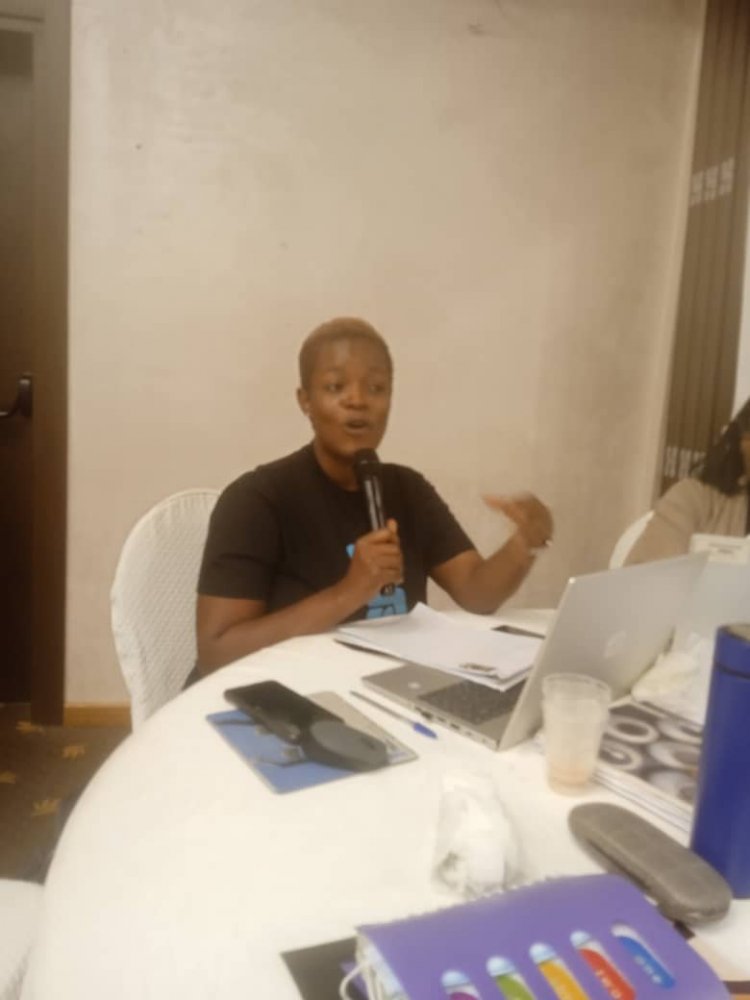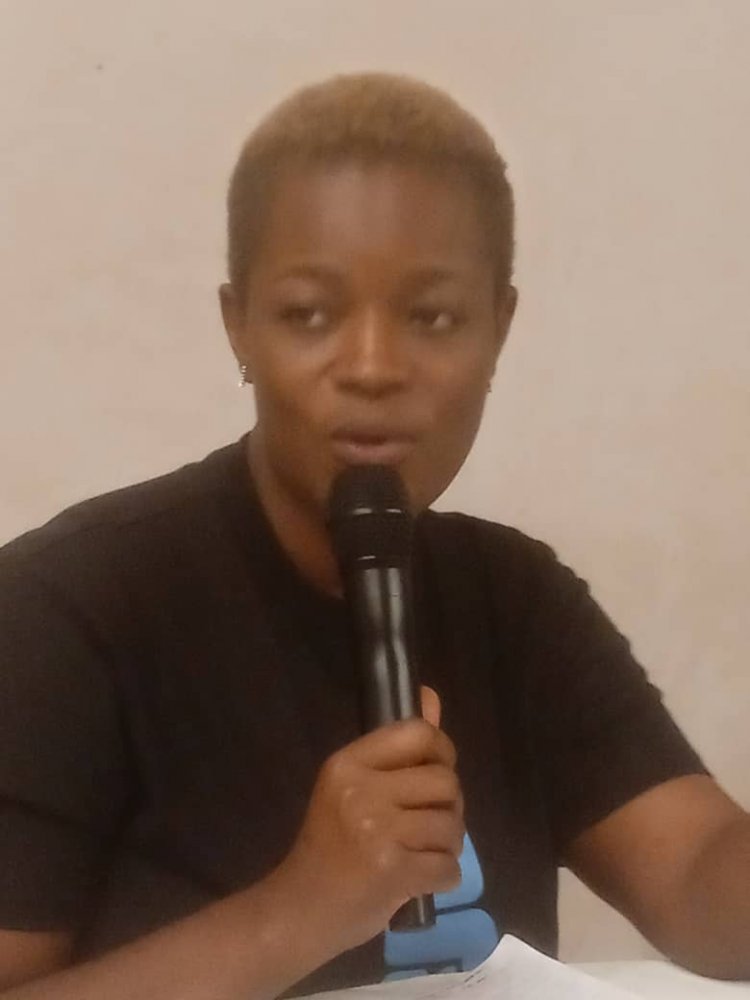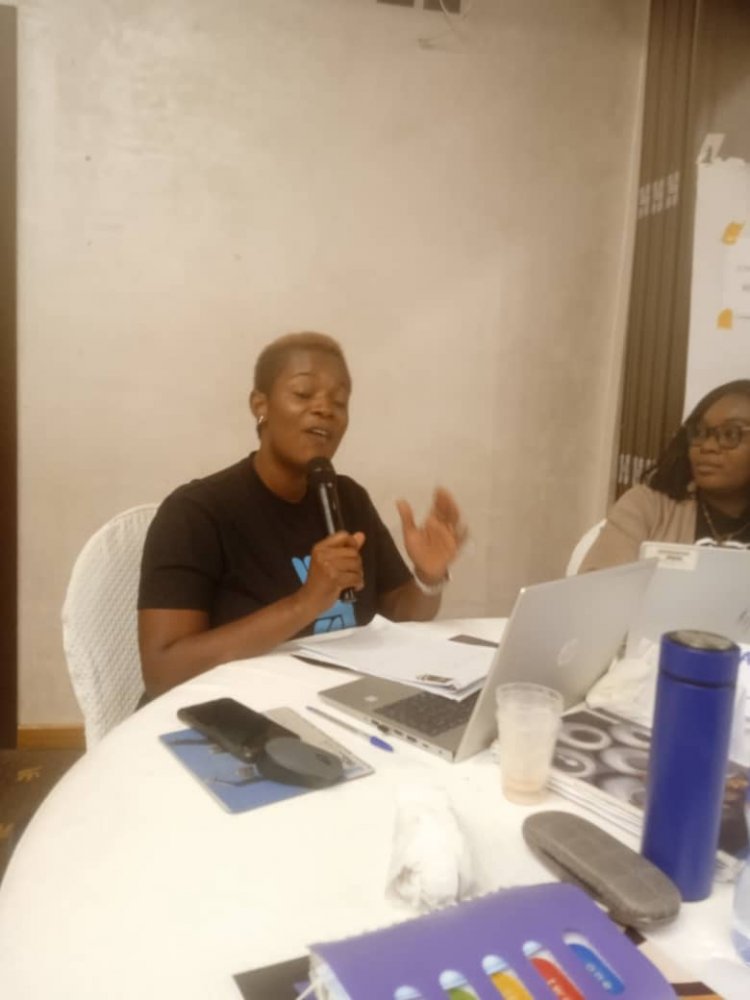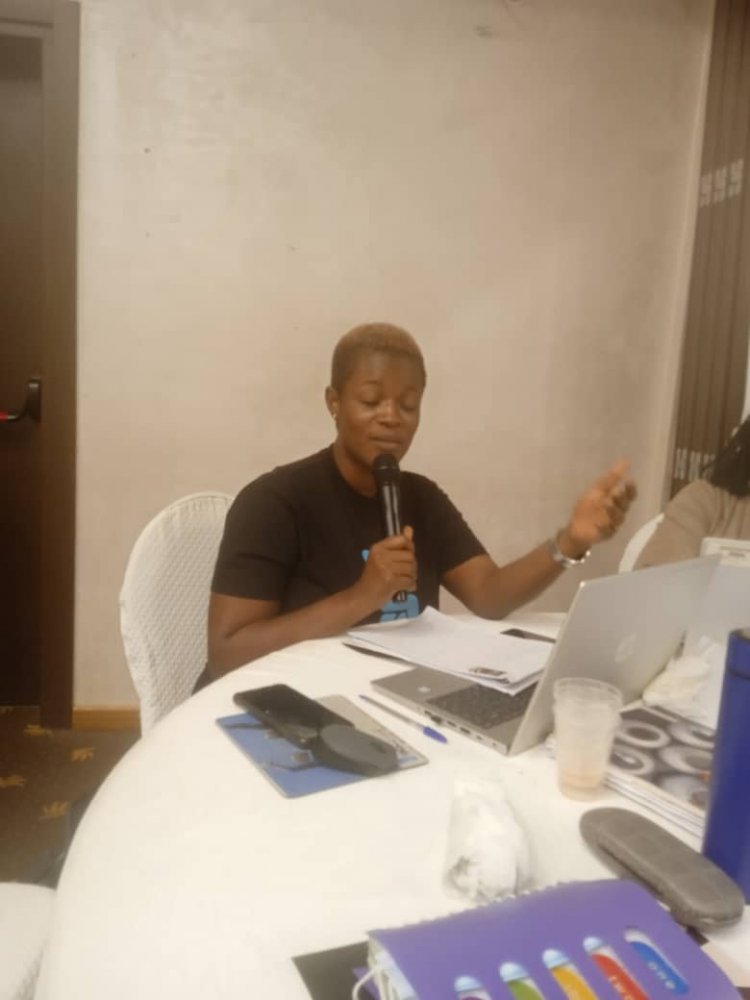The Country Director of WaterAid Ghana, Madam Ewuraena Yanyi-Akofur, has announced her outfit commitment to adopt the district-wide approach to help articulate safe drinking-water, sanitation and hygiene (WASH) plans which are crucial to human health and well-being.
According to Madam Yanyi-Akofur, plans were underway for the WaterAid Ghana to model district-wide approach in the Bongo District in the next five years.
The district-wide approach is a relevant and effective approach for articulating WASH plans, and to get buy-in from various stakeholders for attaining universal access and the stakeholders' roles therein.
"So district-wide approach is what we in WaterAid Ghana seeks to do, so we are going to model that in Bongo District in the next five years," she reiterated.
She stressed that Bongo District is going to be its signature district for progressively working towards sustainable WASH in the next five years.
Madam Yanyi-Akofur disclosed this in an interview with the National Coordinator of
Ghana WASH Journalists Network (GWJN), Mr Justice Lee Adoboe during the ongoing Annual Review Meeting of WaterAid Ghana held in Bolgatanga
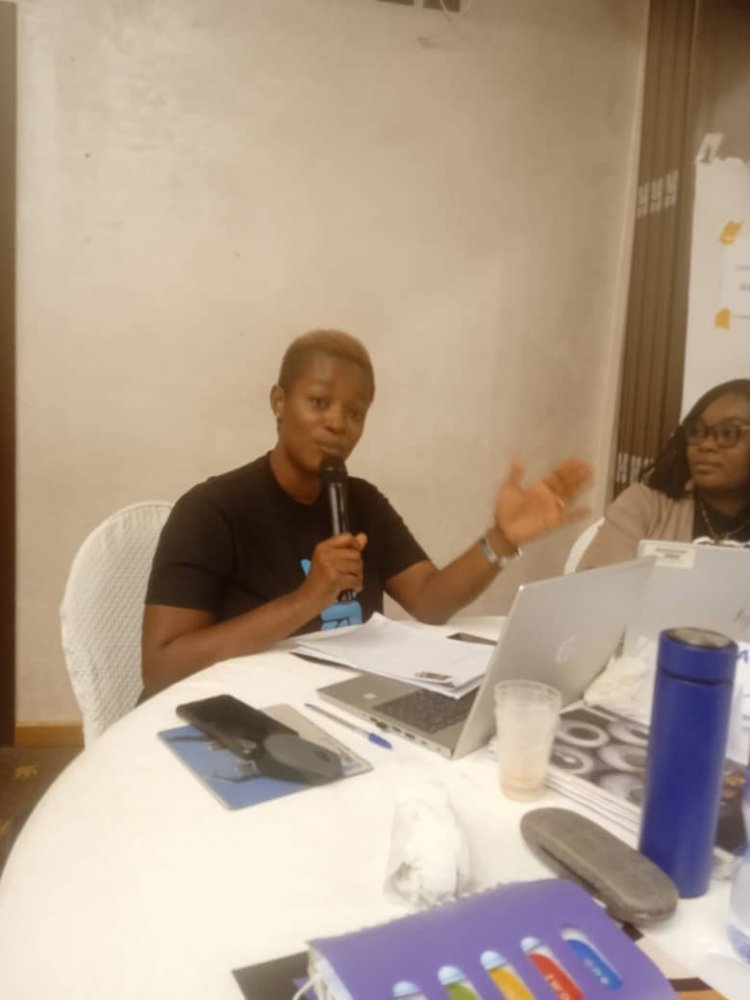
The WaterAid Ghana opened its Annual Review Meeting in the Upper East regional capital, Bolgatanga Monday with partners sharing experiences on their activities, successes, and challenges 2022, to chart a way forward.
Representatives of Metropolitan, Municipal, and District Assemblies from the Upper East region, Ministry of Sanitation and Water Resources, the Upper East Coordinating Council, Ghana Health Service, Ghana Education Service, the Coalition of NGOs in Water and Sanitation (CONIWAs) with its member organizations are taking part in the three-day meeting.
Below is the full text of the interview Justice Lee Adoboe has with Ewuraena Yanyi-Akofur, Country Director of WaterAid Ghana during the ongoing Annual Review Meeting of WAG in.Bolgatanga.
WaterAid Ewurabena
Meeting with our partners to reflect on what we said we would do and what wes’ve been able to achieve and to really understand how we achieved those targets we set, what are some of the challenges and what did we learn in that process, what have been the successes, what is emerging that we believe that as a country we can use it to influence how we work towards achieving sustainable and universal WASH access.
This year is also a transition year for us, and so we appreciate the opportunity to have our partners, the big decision makers in the room with us. the DCEs, Coordinating directors, GHS Directors, , GES, GWCK, CWSA, National NGOs led by CONIWAS, and being able to share with them what we have done.
That peer review, peer accountability is very important to us because we believe that if we will be able to partner well, and if we will be able to achieve the goals with our partners, there is the need for us to be transparent collaborate more effectively, understand our shared vision, the challenge that we are all trying to address when it comes to access to WASH in the country.
This is a transition year. Our previous strategy from 2017 to 2021 has ended. We have been in the process of defining our roadmap for the next five years, and it’s been an amazing journey working with our partners for the last one year, doing field assessment, validating the results, having conversations with them in Koforidua to understand with them what should be the theory of change, what should be the path to success, that we should be defining over the next five years and how to achieve that.
Ando so this has been a transition period, and it’s been a learning, and it’s been about building more evidence, and learning from other partners and learning from government on what has worked, and how we can break all those best practices and learning across the sector not just what WaterAid has done but what other partners have also done that has been successful, learning from them and bringing it all together and acting on what will then take us further, because if we want to achieve sustainable and universal WASH by 2030, we need to be finding the ways and means to go further, we cannot be going at the same pace that we were going over the last five years or the last ten or 20 years.
(GHANA NEEDS TO MORE EFFECTIVE ACTIONS TO ACHIEVE SUSTAINABLE WASH BY 2030)
We need to ask how do we go further and reach far in this challenge. I am excited to be here to learn and most importantly, the fact that we are working together, because without partnership, there will be no WaterAid, and without our community members, without the men, the women, the participants that we seek to work with, without them, there will be no WaterAid and there will be no government.
This conversation here is all about them, how do we support them to deliver sustainable WASH services.
We haven’t officially launched the strategy, but it’ been approved with our partners, and this is a good strategy and this is the way to go.
But what are we seeking to do over the next five years? It is ablut being able to model how we can achieve progressively universal sustainable access WASH at the local government level.
They are the highest decision making body when it comes to community or local level and we need to figure out what we call our district-wide or Area-wide approach WaterAid.
How do we ensure that we strengthen systems? It is not just about providing infrastructure, but how do we work with our partners-communities, NGOs, media, CSOs, local government authority to figure out what is needed, gaps in the WASH systems and what is needed to improve those systems to deliver universal and sustainable WASH.
So that district-wide approach is what we seek to do, so we are going to model that in Bongo District in the next five years.
It is going to be our signature district for progressively working towards sustainable WASH in the next five years.
The second critical thing we are going to focus on in the next five years is how we strengthen the WASH systems when it comes to the health sector.
WASH in health care facilities is very critical to delivery and better services and quality service to patients. Similarly, also hygiene.
How do you promote hygiene in the health sector. Not just in the hospitals, but then also in the communities that we are serving. What roles can the Ghana health Service play so that we see the role of the Environmental Health division to promote sustainable hygiene behavior and services within the communities and health facilities so that our health facilities are WASH compliant, meeting the best and highest standards in providing health services. And we are still focused on rural areas, the hard-to reach areas, the most marginalized when it comes to these facilities.
Today I was in one community where they said they walk for one and half hours to the health care facility and no water in the health care facility so they have to carry water to this place. So we really need to look at these challenges. So we have to work with the government, our local partners, the GHS to address this challenge, and call on DPs to support us to improve access to WASH facilities.
Then thirdly, Climate Change:
We have heard over and over again how latrines are collapsing due to flooding , this morning we were told about boreholes that dry up in the dry season and that generates conflict, because among those who need water for household needs and those who need water for agriculture activities, for livelihoods, when there is no water, it impacts their lives.
It impacts school life, impacts delivery of health care services, impacts on livelihoods. So under climate change we are looking at building more Climate Resilient WASH services in the country, and pushing that there is no Climate Change (Action) without WASH.
Without WASH, communities are more vulnerable during hazards like floods, or in the dry season, they are vulnerable to diseases, without healthy lives we cannot have a healthy nation, so we are really looking at the issue of Climate change an marry the two to ensure that we have a very resilient WASH systems in our communities. And that is a critical thing for us.
One of the things that we are also realizing is the issue of security and the vulnerability of some f the communities that we serve to violent and extremism, being very close to the Burkina Faso border, there are certain threats that it presents to us as a country.
Even looking at first of all how communities become more vulnerable in access to water, and how we can use water as a rallying point to address some of these insecurity issues through water, through WAS innovatively and improve community and young people’s resilience to violent extremism.
How we can bring Fulani headsmen and community members together through water, through WASH innovatively to address some of these insecurity that threatens our country. It’s an exciting document with our partners we believe that with the hard work, dedication and the leadership we have from the districts we are capable to deliver.
We are all speaking the same language at sustainability, we are all ashamed about the fact that we’ve been doing so much over the last three or four decades, yet there are places you go AND THERE’S NOTHING TO SHOW worth the investment. So you see that in all the conversation, you keep hearing sustainability.
And all my notes, I have been jotting down issues that have to do with dealing with sustainability and so many amazing ideas have come around sustainability. It goes beyond WASH, looking at the problem holistically, and every facet o the community an our livelihoods can come and address the issues including WASH.
